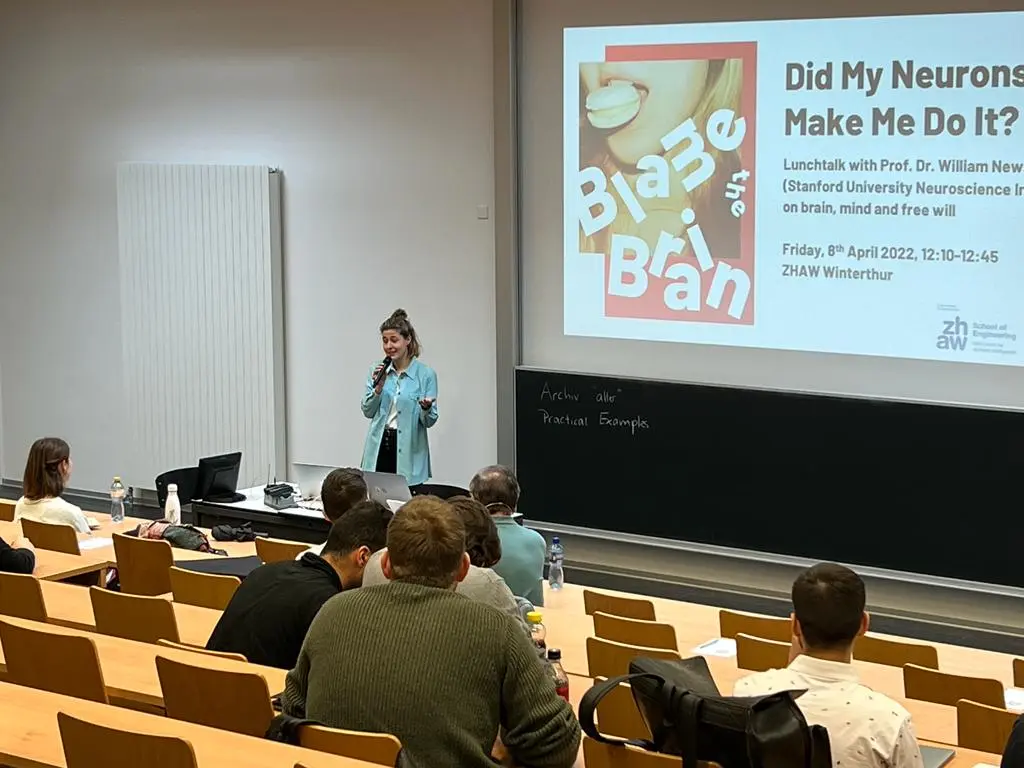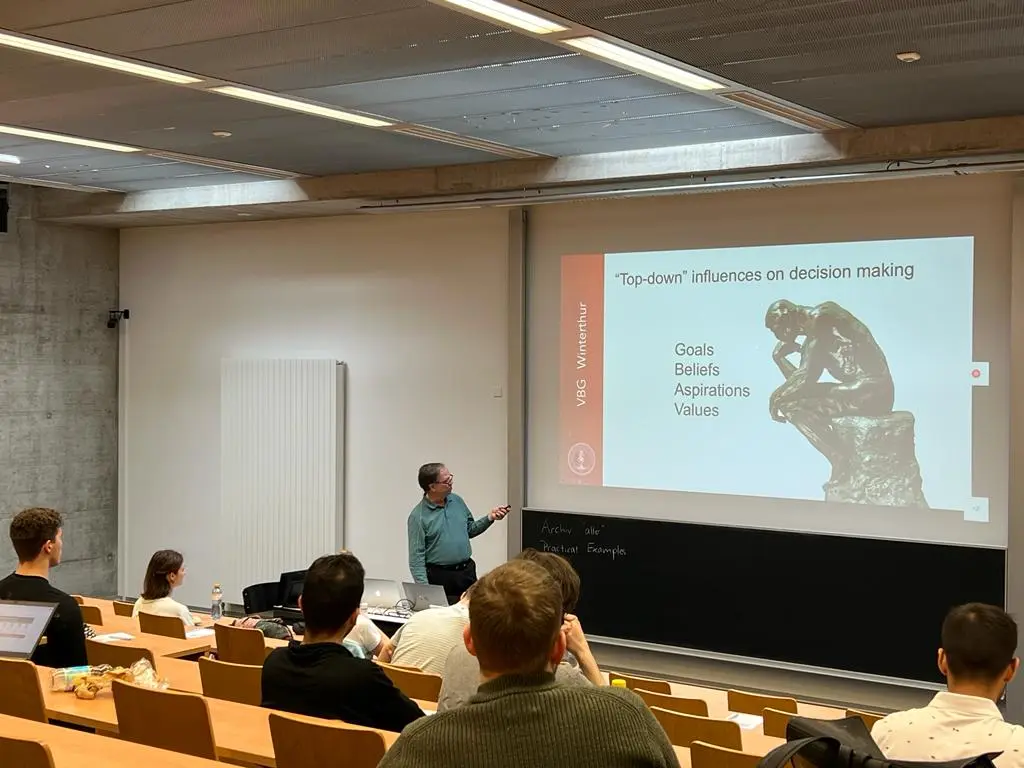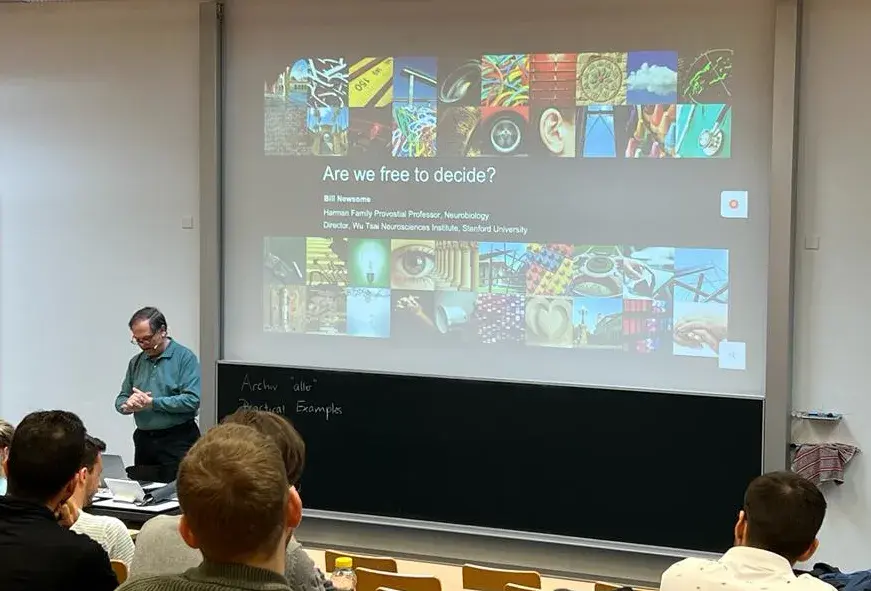Stanford’s Bill Newsome at the CAI
As part of the Templeton Lecture Series, Stanford’s Prof. Bill Newsome gave a remarkable talk on how free our decisions are and what factors influence our decision making
Are we free to decide? How do traditional notions of free choice, personal responsibility and religious faith align to each other in terms of neuroscientific understanding of the brain and cognition? As part of the Templeton Lecture Series* and organized by the Christian student campus group (VBG) in cooperation with the Center for Artificial Intelligence (CAI) at the ZHAW, Stanford’s Prof. Bill Newsome gave a remarkable talk on the study of decision making and what factors do influence our decision making. From the neurobiological and psychological point of view, he argued that top-down influences, such as goals, beliefs, and aspirations are combined with bottom-up influences, such as individual genetics and conscious experiences to build up the decision-making process.
More specifically, he pointed out that most of our decisions are a combination of biological drives and beliefs together with conscious and subconscious experiences.
Furthermore, Prof. Newsome argued that the knowledge of neurons and synapses is essential for understanding how the brain shapes cognition. But systems-level knowledge, including the level of the unique person, is essential to understand how and why specific behaviors emerge from the interactions of billions of neurons. This multilevel perspective allows us then to think about the relationship about human choice and freedom with the ultimate goal of enhancing human growth and health.
Finally, Prof. Newsome pointed out that having defined moral principles and recognizing situational risk factors, can help us to be the people we most want to be.
* The John Templeton Foundation funds research and catalyzes conversations that inspire people with awe and wonder focusing on world affairs and religion. Its vision is to become a global catalyst for discoveries that contribute to human flourishing.


